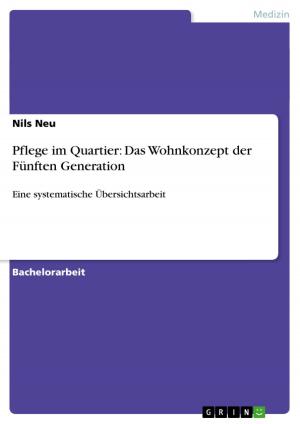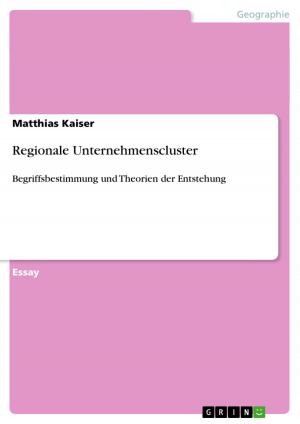Development of an agile business strategy in an uncertain market environment
Business & Finance, Management & Leadership, Management| Author: | Hans-Peter Mutzel | ISBN: | 9783656870579 |
| Publisher: | GRIN Verlag | Publication: | January 7, 2015 |
| Imprint: | GRIN Verlag | Language: | English |
| Author: | Hans-Peter Mutzel |
| ISBN: | 9783656870579 |
| Publisher: | GRIN Verlag |
| Publication: | January 7, 2015 |
| Imprint: | GRIN Verlag |
| Language: | English |
Master's Thesis from the year 2014 in the subject Business economics - Business Management, Corporate Governance, grade: 1, Donau-Universität Krems (Faculty of Business and Globalization; Department for Management and Economics), course: Danube Professional MBA; Area of Concentration: Strategic Management & Organizational Change, language: English, abstract: Strategic decision-making is a key task for every senior manager of any sized company. Strategic decisions are characterized by highly uncertain conditions. Managing this uncertainty and anticipating the future, is seen as key to success and the measure for being a successful manager. In the opposite direction, if firms fail to anticipate how the future will be, it is then often called 'bad luck'. However, if 'failing to anticipate the future' were correlated with bad luck, this would mean that 'anticipating the future right' should be directly linked with good luck. However, good luck is often ignored and seen as excellent management performance instead. To reduce the influence of luck, this master thesis deals with the different approaches on strategy-formation and decision-making, to identify to what extent they differ in their methodology on how they manage the uncertainty and how they try to get control over the future. The aim is to identify best practice approaches that should lead to better performance on reduced risk and cost.
Master's Thesis from the year 2014 in the subject Business economics - Business Management, Corporate Governance, grade: 1, Donau-Universität Krems (Faculty of Business and Globalization; Department for Management and Economics), course: Danube Professional MBA; Area of Concentration: Strategic Management & Organizational Change, language: English, abstract: Strategic decision-making is a key task for every senior manager of any sized company. Strategic decisions are characterized by highly uncertain conditions. Managing this uncertainty and anticipating the future, is seen as key to success and the measure for being a successful manager. In the opposite direction, if firms fail to anticipate how the future will be, it is then often called 'bad luck'. However, if 'failing to anticipate the future' were correlated with bad luck, this would mean that 'anticipating the future right' should be directly linked with good luck. However, good luck is often ignored and seen as excellent management performance instead. To reduce the influence of luck, this master thesis deals with the different approaches on strategy-formation and decision-making, to identify to what extent they differ in their methodology on how they manage the uncertainty and how they try to get control over the future. The aim is to identify best practice approaches that should lead to better performance on reduced risk and cost.















